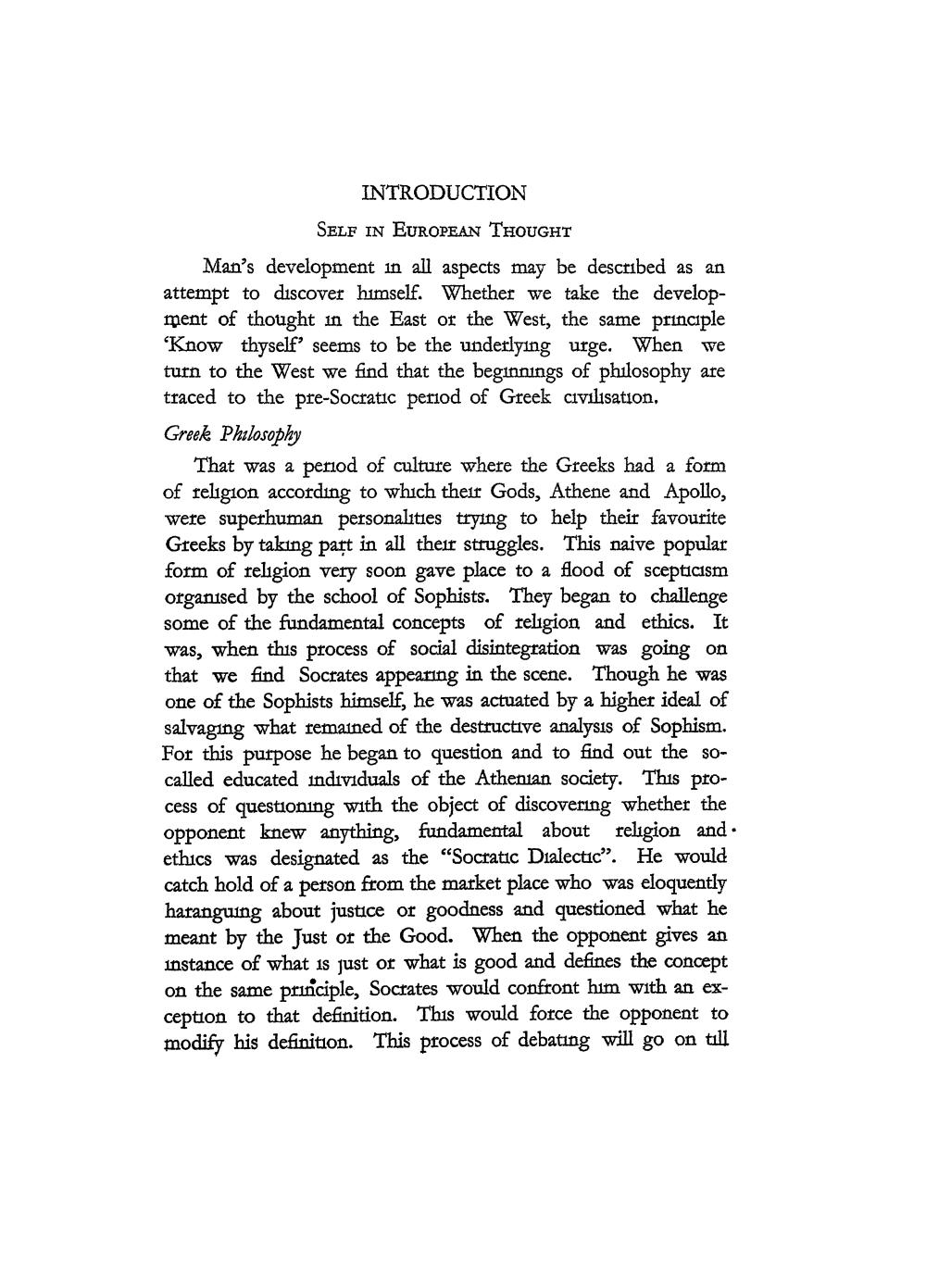________________
INTRODUCTION
SELF IN EUROPEAN THOUGHT Man's development in all aspects may be described as an attempt to discover himself. Whether we take the development of thought in the East of the West, the same principle Know thyself' seems to be the underlying urge. When we turn to the West we find that the beginnings of philosophy are traced to the pre-Socratic period of Greek civilisation, Greek Philosophy
That was a period of culture where the Greeks had a form of religion according to which their Gods, Athene and Apollo, were superhuman personalities trying to help their favourite Greeks by taking part in all their struggles. This naive popular form of religion very soon gave place to a flood of scepticism organised by the school of Sophists. They began to challenge some of the fundamental concepts of religion and ethics. It was, when this process of social disintegration was going on that we find Socrates appearing in the scene. Though he was one of the Sophists himself, he was actuated by a higher ideal of salvaging what remained of the destructive analysis of Sophism. For this purpose he began to question and to find out the socalled educated individuals of the Athenian society. This process of questioning with the object of discovering whether the opponent knew anything, fundamental about religion and ethics was designated as the "Socratic Dialectic". He would catch hold of a person from the market place who was eloquently haranguing about justice or goodness and questioned what he meant by the Just of the Good. When the opponent gives an instance of what is just or what is good and defines the concept on the same principle, Socrates would confront him with an exception to that definition. This would force the opponent to modify his definition. This process of debating will go on till




